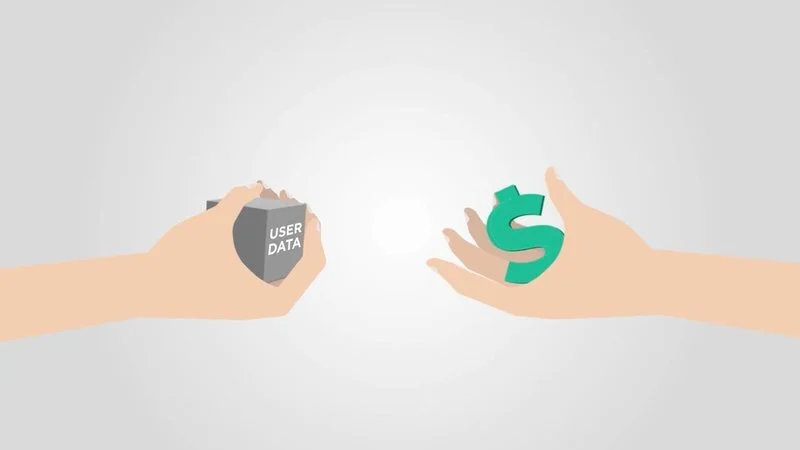Smart Disclosure: Innovation in Personal Data
It is no secret that the fitful economic recovery that continues to plague us could really use some spurs to innovation. But good ideas seem to fall by the wayside as Washington remains in an intractable political deadlock. Into this mess comes a simple idea with big potential – Smart Disclosure. Spearheaded by Cass Sunstein, formerly of Harvard Law School and now the Administrator for the White House’s Office of Information and Regulatory Affairs (OIRA), Smart Disclosure refers to companies and the government releasing our personal data back to us in formats we can use. To quote Sunstein, “the term ‘smart disclosure’ refers to the timely release of complex information and data in standardized, machine readable formats in ways that enable consumers to make informed decisions.”
RECAP and Nudge
The concept is based on what Richard Thaler and Sunstein call RECAP in Nudge, their groundbreaking book on behavioral economics and what they call “choice architectures” or ways to nudge people toward making choices that benefit them. According to the authors, RECAP (Record, Evaluate and Compare Alternative Prices) is the practice of companies disclosing consumer pricing information and usage which consumers then can use to compare prices and services. RECAP would have a big impact in markets where pricing is very complex and opaque. Think about cell phone plans, insurance policies, airline tickets, hotel rooms and credit card agreements to name a few obvious examples. The vision of RECAP is that we could see how we have used a product or service and then be able to shop for a solution best tailored to our needs going forward.
Smart Disclosure (and its sister initiative in the UK, Midata) addresses multiple agendas. First, Smart Disclosure wrests control of personal data from the hands of corporate interests and puts it somewhat under our control. This power shift addresses a number of transparency and privacy concerns many of us have about how our personal data are collected and used.
Spurring Innovation
While consumer rights are one driving force behind Smart Disclosure, the potential to spur innovation is a close second. Open data sets in portable formats encourage entrepreneurs and third parties to develop choice engines helping customers to make better decisions. Smart Disclosure is part of the larger Open Government Partnership and OIRA is actively encouraging adherents to explore the many consumer-oriented resources available at the Data.gov website to jumpstart solutions.
Beyond this, Smart Disclosure enables the development of what Doc Searls in his new book, The Intention Economy, calls “fourth parties.” As Searls explains, third parties work on behalf of companies to help them offer us better customer service. So they sit between us and vendors, but their business models depend on servicing the supply side of the equation. Fourth parties build solutions for us to manage our relationships with companies more effectively – they serve our interests first, offering effective demand-side services. When we have access to our data in portable, machine-readable formats, it is easy to imagine the emergence of new tools on both the supply and the demand side. From there, a whole new landscape for innovation starts to emerge.
Government “Buttons” Lead the Way
An early example of Smart Disclosure can be found in the Veteran Administration’s “blue button” initiative. Blue Button lets any VA client download his or her health records into a simple text file or pdf. Since August 2010, when the initiative was announced, Medicare, Tricare and a number or private providers including McKesson, Aetna, Humana and Walgreens have all committed to the initiative. Now, third party developers and partners are starting to build apps and services for Blue Button stimulating a wave of innovation.
While many in the tech industry have shied away from supporting regulation and consumer-centric business models, some are starting to see the value in open personal data initiatives. VC Fred Wilson from Union Square Ventures, welcomes the innovations starting to emerge from open consumer data initiatives. Wilson’s primary investment target is “networks of engaged users.” And it is hard to argue that giving people access to their information will make them less engaged. In fact, when we gain some control over our information, our engagement is likely to skyrocket.In his influential blog, Wilson enthused about the Green Button, another government disclosure initiative similar to the Blue Button but for the energy market .
“This is the kind of innovation that gets me excited. The Green Button . . . is a simple standard that the utilities can implement on one side and web/mobile developers can implement on the other side. And the result is a ton of information sharing about energy consumption and in all likelihood energy savings that result from more informed consumers.”
He went on to say, “I'm a big fan of simplicity and open standards to unleash a lot of innovation. APIs and open data aren't always simple concepts for end users. Green Buttons and Blue Buttons are pretty simple concepts that most consumers will understand. I'm hoping we soon see Yellow Buttons, Red Buttons, Purple Buttons, and Orange Buttons too.”
These markets are growing fast. As of March of 2012, just three months after the Green Button program was announced, nine major utilities serving more than 15 million households have signed on. The private sector is stepping up, with commitments to support apps and deployment of consumer information from Itron, OPower, Oracle, Silver Spring Networks, Aclara and Tendril. Consumer apps are coming online and in a very short period, the market is starting to take off.Smart Disclosure is good news in an environment that makes most of us feel that our personal data are locked beyond our control. Putting us in control of our choices is the most sensible approach to sustained innovation. We will be engaged, loyal and trusting when we have transparent and actionable access to our information.





